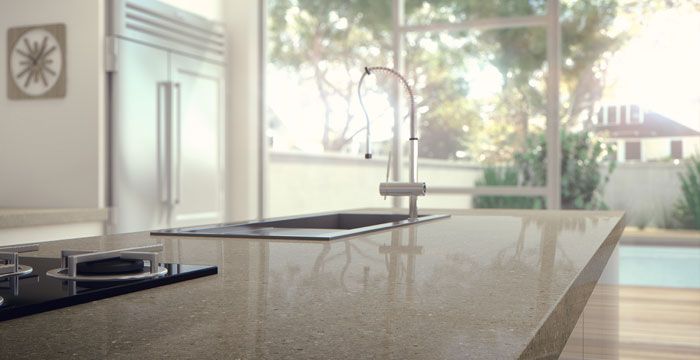Sensational How Is Caesarstone Made

Talent innovation and cutting edge technology go into each and every Caesarstone collection.
How is caesarstone made. The end result is an almost completely non-porous surface that offers a cost effective substitute to natural stone. It is where everything happens the special place for coming together with family and friends and finding your own creative space alongside others. Caesarstone countertop is the heart of the home.
Life flows by the family grows and changes but your Caesarstone countertop remains timeless. This is a small variation that does not make much difference in the appearance feel or its durability. If you are a Caesarstone trader partner please call your local Caesarstone representative or call 8779782789 to order samples.
Types of Caesarstone Quartz. Quartz countertops are a man-made stone that Caesarstone pioneered and we engineer surfaces with up to 90 quartz minerals to give advantages that are unattainable in marble granite and other natural stones. While numbers will vary between different brands Caesarstones quartz surfaces are manufactured by combining 93 percent quartz mineral with 7 percent polyresin.
Caesarstone Quartz is made using Bretonstone Technology a process in which many different quartz manufacturers employ to create the finest quartz slabs known to man. Caesarstone takes the luxury of quartz outside. Vacuum pressure and intense vibrations are used to compact the raw material into dense non-porous slabs.
Silestone manufactures their countertops with at least 90 quartz. The groundbreaking Outdoor Collection provides the convenience of stain-resistant easy-to-clean highly durable surfaces with the brands stunning designs. Caesarstone has a 90- 93 quartz content.
Caesarstone is made from natural quartz and therefore some variation in colour and aggregate can be expected on slabs. Caesarstone quartz surfaces are manufactured from approximately 90 quartz one of natures hardest minerals and high-quality polymer resins and pigments that are compacted under intense vibration vacuum and pressure into dense non-porous slabs. Caesarstones Manufacturing Process and polymer resins and poured into molds that form slabs of 306x144 cm or 120x57 inches in size.













